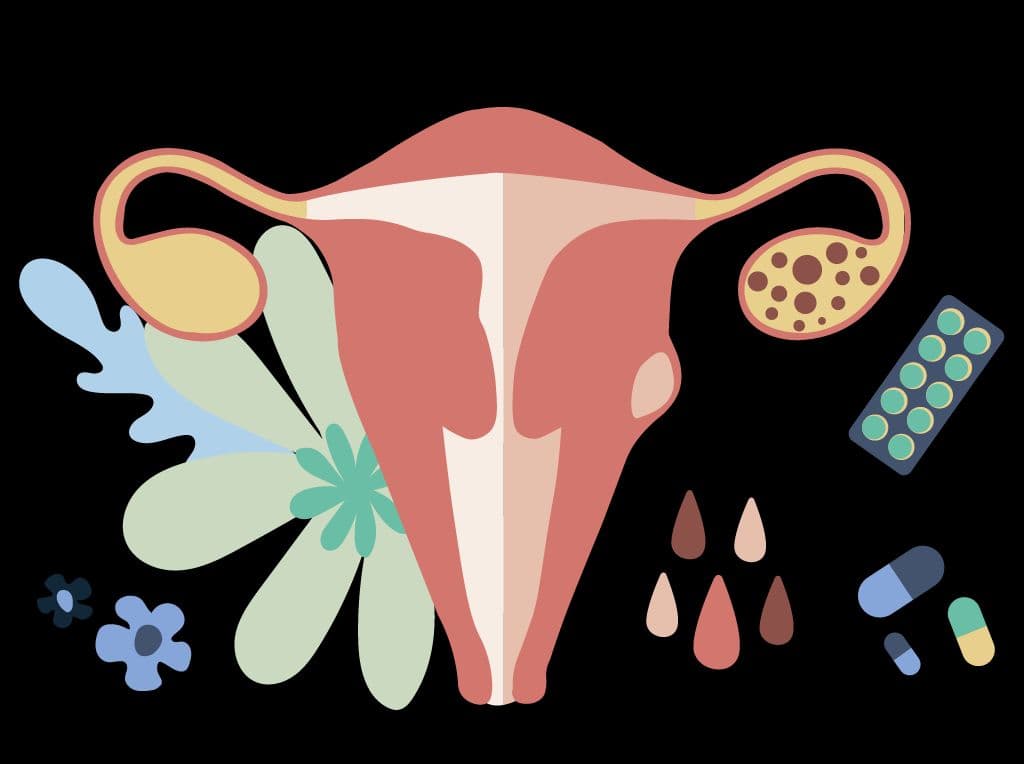Polycystic ovarian syndrome, or PCOS, is a common hormonal imbalance condition. Menstruators with PCOS can struggle to become pregnant and are at a greater risk of developing complications during pregnancy. Also, babies born to mothers with PCOS may be at a higher risk of spending time in the neonatal intensive care unit or developing other complications before and after post-birth. It is good to consult with your OB-GYN/Gynecologist while planning for pregnancy and also understand the relationship between PCOS and miscarriage. Let’s start with the most common question - how does PCOS affect pregnancy?
PCOS patients have an increased risk of developing several medical complications, including:
- Insulin resistance
- Type 2 diabetes
- High cholesterol
- Heart disease
- High blood pressure
- Stroke
- Sleep apnea
Polycystic ovary syndrome (PCOS) affects 6 to 15% of menstruators around the globe. It is associated with an increased risk of miscarriage, gestational diabetes mellitus (diabetes developing for the first time during pregnancy), hypertensive disorders of pregnancy and preterm delivery.
Miscarriage with PCOS
Menstruators with PCOS are at risk of EPL (Early Pregnancy Loss), defined clinically as first-trimester miscarriage. This number can be anywhere between 30-50%. There are several different factors related to PCOS which can increase your miscarriage rate. These include:
- High levels of androgens or male hormones (Hyperandrogenism)
- Elevated LH levels
- Insulin resistance with elevated Insulin levels
- Endometrial Dysfunction with failure to implant
- High plasminogen activator inhibitor-1(PAI-1) activity
- Infertility treatments
- Genetic abnormalities
PCOS & Pregnancy - can you increase your chances?
Some of these above-mentioned factors can be dealt with changes in diet, exercise and lifestyle, alongside regular consultations with your doctor. Your doctor may prescribe anti-diabetic medication like metformin to treat PCOS. Metformin is an oral drug to control diabetes. It brings down the increased levels of insulin, and reduces risk factors for heart problems and clotting. Its use in the first trimester may reduce the risk of miscarriage.
At what week commonly do miscarriages happen with PCOS?
Pregnancy loss is common during the first trimester (first 12 weeks). After the first trimester, folks with PCOS may undergo late-pregnancy complications such as gestational diabetes, pregnancy-related high blood pressure, premature delivery, pre-eclampsia and small for gestational age (SGA) infants.
How does pregnancy with PCOS affect the baby?
Having PCOS during pregnancy will require more monitoring for both you and your baby. The potential risks with PCOS for the infant may include:
- Miscarriage
- Premature birth
- Small for gestational age
- Large for gestational age (those developing Diabetes)
- Lower Apgar score

PCOS & Miscarriage Prevention
When trying to conceive and during pregnancy, the best thing to do is make certain lifestyle changes such as diet and exercise to significantly improve pregnancy outcomes.
Below are some tips for a healthy pregnancy :
- Take prenatal vitamins prescribed by your obstetrician. Your doctor may recommend a multivitamin with folic acid 1-2 months before you conceive. Folic acid reduces the risk of brain and spinal cord defects in developing babies if taken before pregnancy.
- Keep medicine intake to a minimum. Some medications are considered safe in pregnancy, while others are not. Discuss all of your medications and supplements with your doctor to ensure their safety and absolute need during pregnancy.
- Exercise helps a PCOS patient in managing their weight. It also serves other benefits such as releasing happy hormones called “endorphins” and reducing stress levels, so you feel good. It also helps regularise menstrual cycles by controlling the levels of the concerned hormones.
- Your diet should be carefully planned with your nutritionist. It should be high in complex, low glycemic carbohydrates and loads of dietary fibre, which are beneficial in reducing insulin requirements in diabetic pregnancies. Foods such as whole grains, leafy green vegetables, and beans are also recommended.
- De-stress yourself by making certain lifestyle changes to your daily routine. You may develop some hobbies so that the mind is constructively occupied and help you in your attempts to get pregnant.
- Smoking and drinking during PCOS cause problems in your attempts to get pregnant. Quit smoking and reduce your alcohol consumption. If you experiment with recreational drugs, you must stop.
- Maintain appropriate glucose levels before and during pregnancy. Effective treatment to prevent gestational diabetes includes frequent blood sugar monitoring, a healthy diet, insulin injections (if required), and regular exercise.
- Increased intake of caffeinated beverages such as coffee, tea, soda, and hot chocolate can increase the risk of miscarriage or result in babies with low birth weight. While pregnant, one can have up to 200 mg of caffeine a day, equivalent to one or two cups.
Effective tackling of metabolic and reproductive issues relating to pregnancy for menstruators with PCOS forms the cornerstone of PCOS management.
Bottom Line
Pregnancy with PCOS may result in complications that affect your health physically as well as mentally. Talk to your doctor, exercise regularly, follow a balanced diet, and take medication as directed. These are all recommended to control PCOS during pregnancy. If you’ve had a miscarriage in the past, or if you have concerns about not being able to carry a pregnancy to term, it is much advisable to talk to your doctor before getting pregnant to discuss possible or known risks and ways to prevent them. Early prenatal care can help you avoid miscarriage and problems in your pregnancy.
Disclaimer: This information is educational and should not be construed as medical advice. Please consult your doctor before making any dietary changes or adding supplements.
Proactive For Her is a digital clinic for women, offering accessible, personalised, and confidential healthcare solutions. We offer outpatient care, diagnostic services and programs for various health concerns of Indian women across their lifetime - from puberty to pregnancy to menopause.

